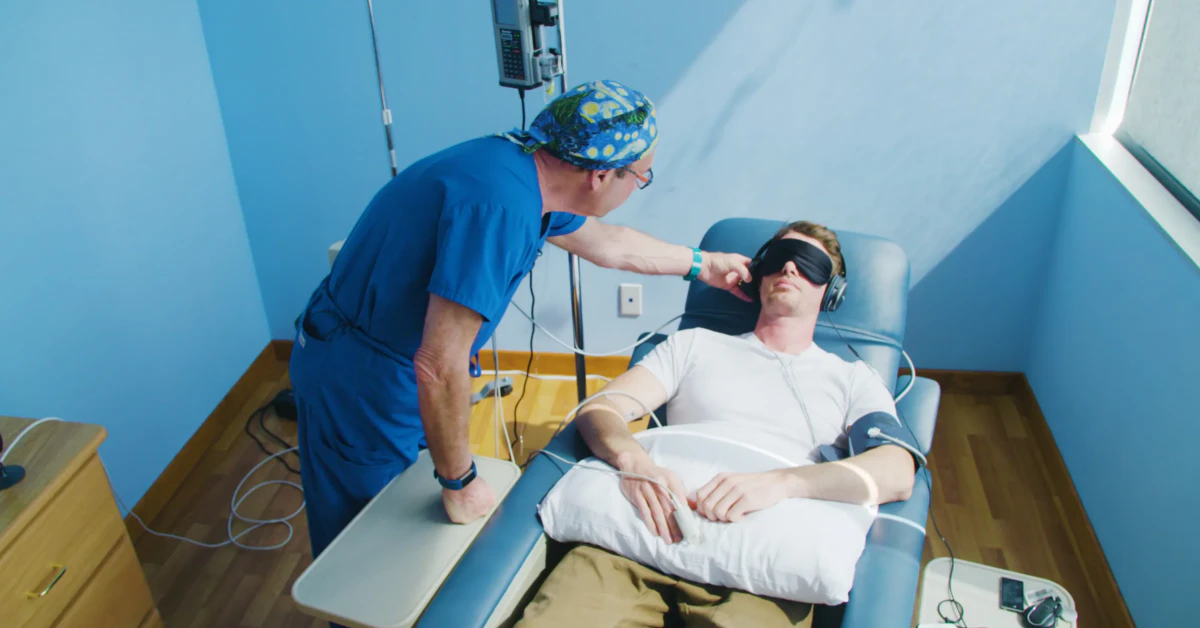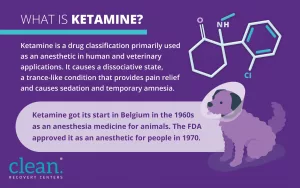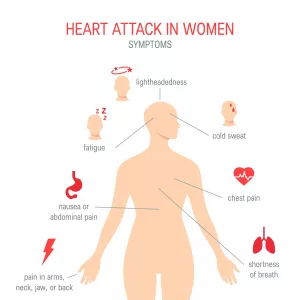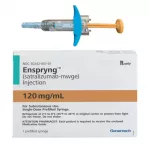You’ve probably heard whispers about ketamine therapy. Maybe a friend said it helped them finally crawl out from under a heavy cloud of pain or depression. Or maybe you’re just tired of feeling stuck, and you’re starting to wonder: is it worth a shot? If so, you’re not alone. But let’s be honest — before diving in, the big question that probably pops into your head is…
“How much does ketamine therapy actually cost?”
Yeah, it’s not a $20 over-the-counter solution. And depending on where you go, how your condition is being treated, and what kind of support comes with the experience, prices can swing quite dramatically.
So we’re going to walk through all of that — the nitty-gritty, real-world costs, what you’re paying for, and even the bits that feel…weird or scary at first. We’ll also touch on what does ketamine therapy feel like, who might want to skip it (because some people really shouldn’t), and whether, yes — it can give you a high if not administered correctly.
This guide isn’t trying to push anything. It’s here to help you make a smart decision based on trusted info, not sales tactics.
How Much Will I Pay?
The short answer?
Ketamine therapy prices vary widely. But we’ve gathered updated info from actual clinics across the country to bring you some clearer numbers.
In general, an IV infusion session runs anywhere from $400 to $1,400+. That’s per session — and most people need at least 4–6 initial treatments before seeing how they respond. Then there’s often a maintenance phase afterward.
Here’s a quick reference pulled from studies and clinic pricing pages like Thervo:
| Condition | Price Per Infusion | Avg. Total for Initial Series |
|---|---|---|
| Depression | $400 – $800 | $2,400 – $6,400 |
| Chronic Pain | $600 – $1,400 | $2,400 – $11,000 |
| Other Conditions (PTSD, OCD) | $400 – $800 | $2,400 – $6,400 |
| Oral/Sublingual Kit | $150 – $200 | $900 – $1,600 |
That’s just average ranges. In reality, I’ve seen telehealth companies like Mind Bloom start around $193 per session for sublingual kits that you take at home under supervision. While in-person clinics sometimes charge as little as $250 per session, like Lighthouse Wellness Center offers.
What Factors Influence Cost?

Like buying a car — the price depends on where you shop, how much power you want under the hood, and whether it’s brand new or secondhand.
Here’s what affects ketamine therapy pricing:
- Type of administration: IV infusions = pricier. Oral/sublingual = more affordable.
- Location: Major cities (NYC, LA) generally cost more than rural areas.
- Clinic reputation and expertise: A clinic with medical doctors involved vs. one with only administrative staff.
- Included integration therapy: Programs that add consultation or psychological guidance usually cost a bit more upfront but offer deeper care.
Let’s back up a minute though — before you even focus on the dollar signs, maybe you’re asking yourself…
Is Ketamine Therapy Right for Me?
That’s super important. Just because something works for others doesn’t mean it will for you — and the same goes for who shouldn’t try this treatment.
There are people who really shouldn’t go near ketamine. As in… nope, not good candidates. Including:
- Anyone with schizophrenia or psychotic episodes
- People actively struggling with substance dependence (without oversight)
- Those with uncontrolled high blood pressure
- Pregnant or breastfeeding individuals (the data isn’t strong yet)
Most clinics do a basic medical evaluation first. You’ll fill out questions about mental health, current meds, physical issues, and what you’re hoping to change.
What Does Ketamine Therapy Feel Like?
This might be the part you’re wondering about most. And I get it. Because when you’re about to drop a chunk of cash on something involving a dissociative drug — you want to know what’s going to happen, inside and out.
The experience depends on dose, method, and setting.
At low doses (which is how it’s used for depression or chronic pain), most people describe it as:
- A floating sensation
- Soft visuals or sound distortion
- Emotional openness or “catharsis”
- Temporary disconnection from surroundings
Now — this isn’t full-on trip mode. Think more like drifting slightly off track without flying off the edge. And that “high” feeling?
Yes, it’s possible — but the point isn’t recreation. These clinics use controlled, structured doses in monitored environments so the experience supports healing rather than getting users “spun.”
How Do I Pick the Right Clinic?
Choosing can feel overwhelming. So here’s a few things you can look for when comparing clinics:
- Are they medically supervised? Not all ketamine programs are the same. Look for ones with nurses, psychiatrists, or physicians involved — not just assistants.
- Do they offer integration support? Real progress happens after the session. Having post-experience therapy helps translate insights into lasting change.
- Do they explain everything upfront? Prices should never be hidden. You deserve total clarity from the start.
- Are others saying good things? Check real reviews on sites like Healthgrades or Google. Listen to what patients say about staff kindness, experience, and results.
You shouldn’t be afraid to call ahead and ask questions directly. Any reputable clinic will answer clearly and respectfully. And if they don’t? Hey — you know where the door is.
Will My Insurance Cover It?
This is where things get frustrating. Because ketamine has been approved by the FDA since 1970 for anesthesia — not for mood disorders or chronic pain. Which means most insurance companies treat it like an off-label therapy.
Translation?
Your insurer might not pay for it. Full stop.
BUT (and this is a big but), many clinics still give patients detailed invoices they can submit to insurance companies. Some people end up getting partial reimbursement back if their plan covers “behavioral health treatments” broadly.
To increase your chances:
- Ask the clinic staff to include all relevant CPT billing codes
- Explain in your own words how ketamine therapy could help with diagnosed mental health or chronic pain conditions
- Contact your insurance rep directly and phrase it as a “psychiatric wellness intervention”
Affording Ketamine Therapy Without Break-the-Bank Stress
Look, we know not everyone has thousands lying around. But there are ways to reduce financial barriers without sacrificing quality care.
A few options to check into:
- Payment plans: A lot of clinics let you split the cost up over several months instead of paying the whole thing at once.
- Telehealth platforms: Remote ketamine support (like at-home sublingual pills plus an app) often cost less than in-person sessions.
- Financing tools: Services like Affirm work with many healthcare providers to offer loans with transparent interest rates.
In fact, companies like Mindbloom offer structured at-home options starting as low as $89 per week.
Still tight on budget? Consider reaching out to local support groups or nonprofits. While small, some do offer grants or low-income discounts for alternative therapies like ketamine. It never hurts to ask.
When It’s Worth the Cost
Imagine you’re trapped in a recurring nightmare. Medications don’t touch it. Therapy didn’t help last time. So now you’re watching days and weeks dissolve into nothing, burning through your energy, relationships, joy.
Then you hear about ketamine. People talk about gentle shifts. Moments of clarity. Breakthroughs that last.
That’s powerful.
People aren’t talking about the cost because they could spare a few extra dollars. They’re talking about finally getting their lives back. About feeling grounded again. Stepping out of fog and back into sunlight. Having tough conversations with themselves — and coming out okay on the other side.
If that sounds like something you’ve been missing? Then yes — it might be worth the investment.
And if this journey feels impossible right now, just breathe. Step-by-step decisions matter more than rushing in headfirst. Ask questions. Try research. Talk to someone who’s been there.
The Final Take: What You Can Do Next
So…ready to find out what ketamine might mean for YOU?
We’ve covered how much sessions cost, what to watch for, whether it’s right for your health situation, how it actually feels, and what makes a solid program worth your time and money.
No guessing. No pressure to commit just yet.
Your next best step might be looking up a local ketamine provider, checking clinic-specific rates, or reaching out to groups online that share honest feedback from real clients.
Whatever you decide — take your time. Talk to a few options. Talk it over with your partner, your doctor, or a close friend. You don’t have to rush into anything.
If you’re here because you’re searching — not just browsing — that means this matters to you. And you deserve answers that come from understanding, trust, and care — the kind that doesn’t leave you wondering.
























Leave a Reply
You must be logged in to post a comment.